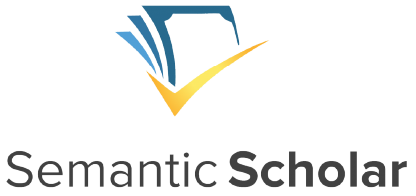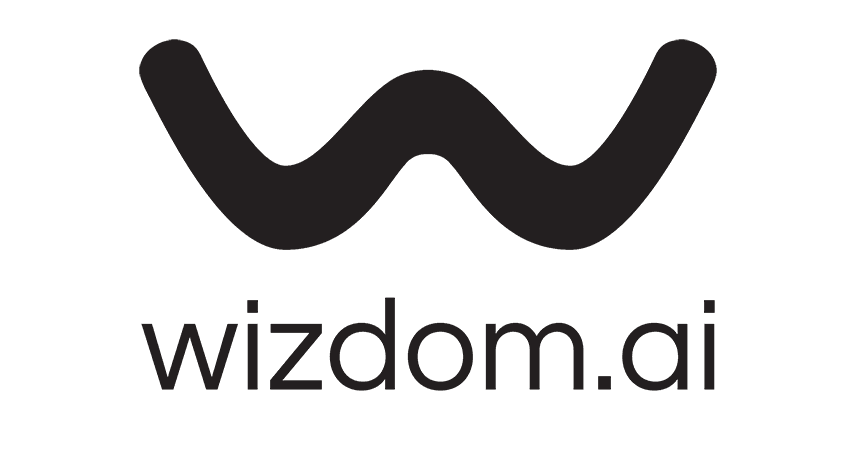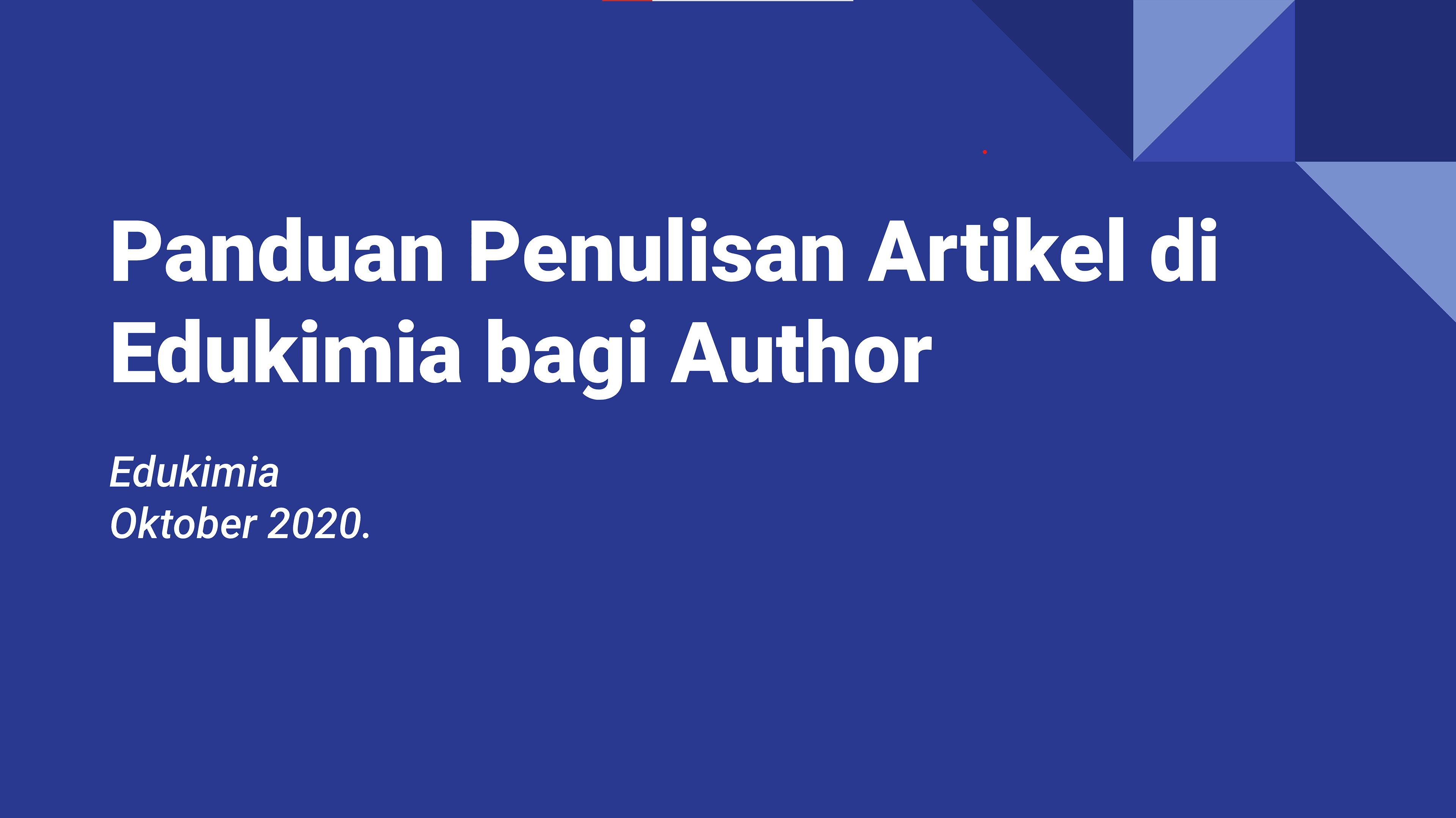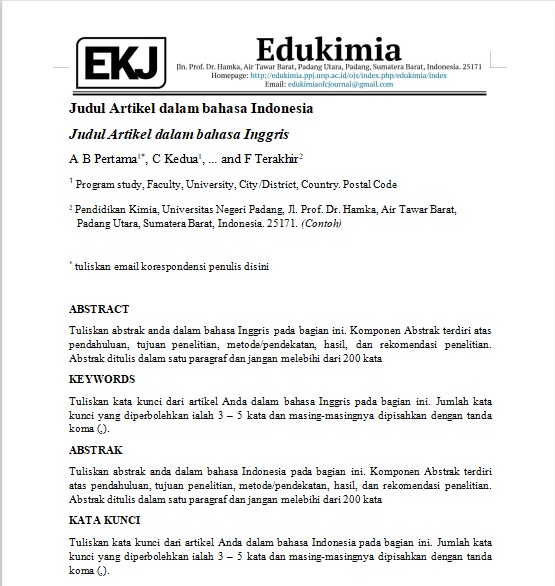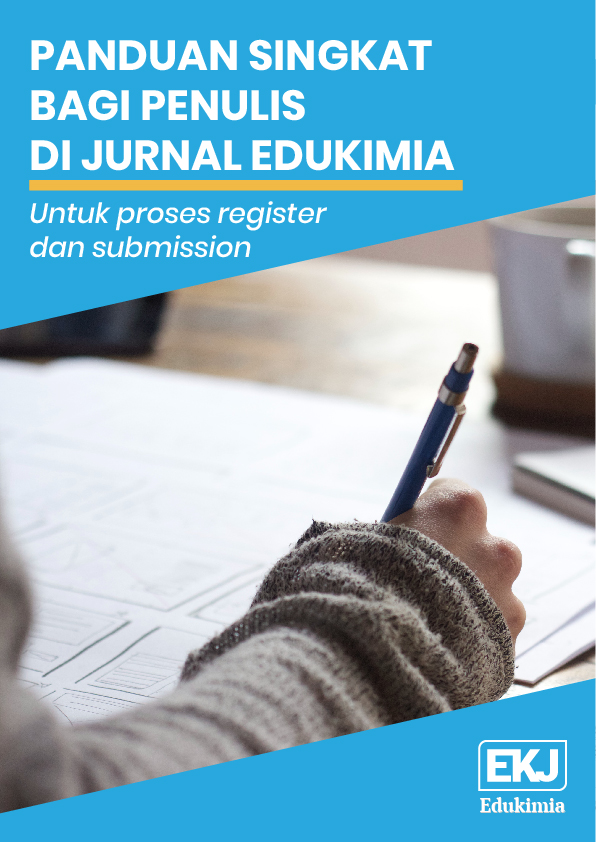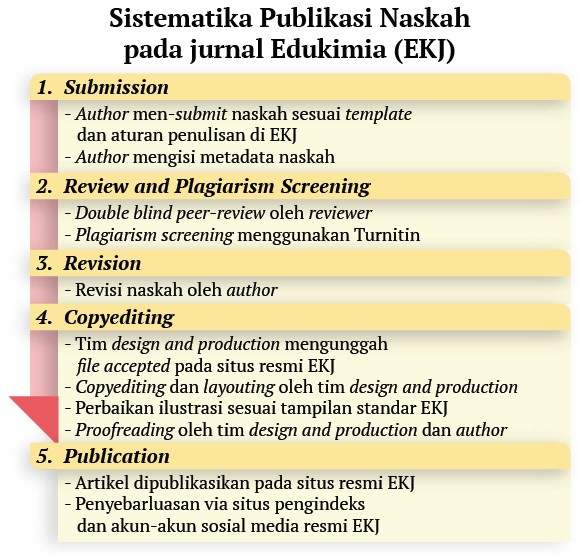A Need Analysis Of Reaction Rate Electronic Module With Socio-Scientific Issues Approach To Improve Student Science Literacy
Article Metrics
The abstract has been viewed for 315 times.The full pdf article has been downloaded for 215 times.
Abstract
The most important achievement in learning science is students’ scientific literacy skills in processing and communicating phenomena in life into science concepts that have been studied at school. One approach that can foster scientific literacy skills is the approach to social issues in life in teaching materials in schools. This study aims (1) to analyze students’ needs for teaching materials; (2) to analyze students’ learning needs with the Socio Scientific Issues approach; and (3) to analyze students’ scientific literacy preconceptual abilities. The method used is descriptive quantitative, using a clinical interview guideline instrument, with research subjects consisting of 10 students. This study used a purposive sampling technique. Data analysis involves several steps, namely data reduction, categorization, validity check, interpretation, and inference. The results of this study indicate that 1) There were 50% of students stated that they were bored with existing teaching materials, 54% stated that they preferred teaching materials that could be read as well as heard, 70% preferred modules, and 70% were very interested in social issues related to reaction rates, 2) Very few students can identify the context correctly and can explain correctly, 3) There were 45% of students did not know, 26% doubtful, and 29% students who know the application of scientific social issues. This shows that it is important to develop electronic chemistry modules based on socio-scientific issues to improve scientific literacy skills.
Keywords
Electronic Chemistry Module; Socio-Scientific Issues; Scientific Literacy
Full Text:
06_451Refbacks
- There are currently no refbacks.

.jpg)


